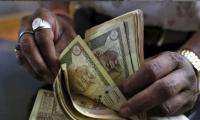DPIIT's Copyright Rule Withdrawal: Boost for Rights Owners
DPIIT's withdrawal of a copyright rule strengthens the position of copyright owners, allowing them to negotiate better royalty rates. Experts say the decision will impact the digital music industry and licensing frameworks.
New Delhi, Aug 26 (PTI) The DPIIT'S withdrawal of the September 2016 office memorandum regarding extending the scope of a copyright rule to internet transmissions would bolster the position of copyright owners and aid them in negotiating better royalty rates, according to experts.
Last week, the Department for Promotion of Industry and Internal Trade (DPIIT) withdrew an office memorandum regarding extending the scope of Section 31D to internet transmissions.
In 2016, through an office memorandum, the government decided to include Internet broadcasting under the purview of the Copyright Act.
DPIIT has said that in light of the decision of the Division Bench of the High Court of Bombay in the matter of Tips Industries Ltd vs Wynk Music Ltd, the office memorandum issued by the department on September 5, 2016, is "hereby rescinded".
This section talks about statutory licences for the broadcasting of literary and musical works and sound recordings.
Abhay JV, Partner, Shardul Amarchand Mangaldas & Co said that the withdrawal of the office memorandum will be welcomed by the owners of copyright (record labels etc) since it will strengthen their position in negotiations with organisations desirous of streaming works on the internet.
"The major advantage to the owners of copyright will be that they will now be able to negotiate the royalty rates, without being anxious of such rates being decided by the commercial court," he said.
However, he added that the action of the DPIIT also underscores the need for India to have a balanced framework where both copyright owners and organisations desirous of using copyrighted works on the internet can benefit.
"This is especially required considering that India has a large internet subscriber base and OTT market and generates substantial revenue. The need for amendment of the existing legislation to keep pace with technological evolution and to deal with complex issues arising therefrom is also imminent," Abhay said.
Explaining the rule, he said Section 31D (inserted after the 2012 amendment) of the Copyright Act, 1957, provides that any broadcasting organisation desirous of communicating a work to the public by way of a broadcast or a performance can acquire a statutory license to do so, by giving prior notice and paying royalty to the owner of copyright at the rate fixed by the commercial court.
In other words, it created a statutory licensing regime whereby a broadcaster was allowed to communicate work after paying royalty to the owner of the copyright, he said.
"The right to broadcast works online through internet transmission is, however, missing from the ambit of Section 31D. Transmission through the internet may include online music streaming services or other related streaming services and OTT platforms," Abhay said.
This absence of transmission through the internet benefited copyright owners as they were able to exploit the ever-expanding online market through individual licensing agreements and without depending upon statutory licenses issued by the relevant authority.
On September 5, 2016, the DPIIT thought it apt to issue an office memorandum stating that Section 31D, which refers to 'any broadcasting organisation desirous of communicating to the public', may not be restrictively interpreted to cover radio and TV broadcasting, but appears to include internet broadcasting as well.
"While there were concerns expressed by the industry, especially the music industry, the memorandum was not rescinded. The notification has now been rescinded by the DPIIT on August 21, 2024, on account of the decision of the division bench of the Bombay High Court disposing of the appeal in Wynk Music Ltd. v. TIPS Industries Ltd. on the basis of a settlement between the parties," he explained.
Global Trade Research Initiative (GTRI) Founder Ajay Srivastava said that the rescinding of the order marks a significant legal development in India's digital content and copyright landscape.
"It underscores the judiciary's role in interpreting statutory provisions and the importance of ensuring that digital platforms comply with the correct licensing frameworks," he said.
Srivastava added that the decision is expected to have a lasting impact on the digital music industry, influencing how music is licensed and distributed online while encouraging fair compensation for artists and rights holders.
"For copyright holders, the decision is a victory that strengthens the protection of their rights in the digital age. It emphasises the importance of securing proper licenses before distributing copyrighted content online, which could lead to more stringent compliance practices within the industry," he said.
On the other hand, digital music platforms have expressed concerns about the potential increase in licensing costs and the challenges of renegotiating agreements, he said adding the decision may also influence the availability of certain music on these platforms, as the cost of obtaining licenses could affect their business models.
Last week, the Department for Promotion of Industry and Internal Trade (DPIIT) withdrew an office memorandum regarding extending the scope of Section 31D to internet transmissions.
In 2016, through an office memorandum, the government decided to include Internet broadcasting under the purview of the Copyright Act.
DPIIT has said that in light of the decision of the Division Bench of the High Court of Bombay in the matter of Tips Industries Ltd vs Wynk Music Ltd, the office memorandum issued by the department on September 5, 2016, is "hereby rescinded".
This section talks about statutory licences for the broadcasting of literary and musical works and sound recordings.
Abhay JV, Partner, Shardul Amarchand Mangaldas & Co said that the withdrawal of the office memorandum will be welcomed by the owners of copyright (record labels etc) since it will strengthen their position in negotiations with organisations desirous of streaming works on the internet.
"The major advantage to the owners of copyright will be that they will now be able to negotiate the royalty rates, without being anxious of such rates being decided by the commercial court," he said.
However, he added that the action of the DPIIT also underscores the need for India to have a balanced framework where both copyright owners and organisations desirous of using copyrighted works on the internet can benefit.
"This is especially required considering that India has a large internet subscriber base and OTT market and generates substantial revenue. The need for amendment of the existing legislation to keep pace with technological evolution and to deal with complex issues arising therefrom is also imminent," Abhay said.
Explaining the rule, he said Section 31D (inserted after the 2012 amendment) of the Copyright Act, 1957, provides that any broadcasting organisation desirous of communicating a work to the public by way of a broadcast or a performance can acquire a statutory license to do so, by giving prior notice and paying royalty to the owner of copyright at the rate fixed by the commercial court.
In other words, it created a statutory licensing regime whereby a broadcaster was allowed to communicate work after paying royalty to the owner of the copyright, he said.
"The right to broadcast works online through internet transmission is, however, missing from the ambit of Section 31D. Transmission through the internet may include online music streaming services or other related streaming services and OTT platforms," Abhay said.
This absence of transmission through the internet benefited copyright owners as they were able to exploit the ever-expanding online market through individual licensing agreements and without depending upon statutory licenses issued by the relevant authority.
On September 5, 2016, the DPIIT thought it apt to issue an office memorandum stating that Section 31D, which refers to 'any broadcasting organisation desirous of communicating to the public', may not be restrictively interpreted to cover radio and TV broadcasting, but appears to include internet broadcasting as well.
"While there were concerns expressed by the industry, especially the music industry, the memorandum was not rescinded. The notification has now been rescinded by the DPIIT on August 21, 2024, on account of the decision of the division bench of the Bombay High Court disposing of the appeal in Wynk Music Ltd. v. TIPS Industries Ltd. on the basis of a settlement between the parties," he explained.
Global Trade Research Initiative (GTRI) Founder Ajay Srivastava said that the rescinding of the order marks a significant legal development in India's digital content and copyright landscape.
"It underscores the judiciary's role in interpreting statutory provisions and the importance of ensuring that digital platforms comply with the correct licensing frameworks," he said.
Srivastava added that the decision is expected to have a lasting impact on the digital music industry, influencing how music is licensed and distributed online while encouraging fair compensation for artists and rights holders.
"For copyright holders, the decision is a victory that strengthens the protection of their rights in the digital age. It emphasises the importance of securing proper licenses before distributing copyrighted content online, which could lead to more stringent compliance practices within the industry," he said.
On the other hand, digital music platforms have expressed concerns about the potential increase in licensing costs and the challenges of renegotiating agreements, he said adding the decision may also influence the availability of certain music on these platforms, as the cost of obtaining licenses could affect their business models.
You May Like To Read
TODAY'S MOST TRADED COMPANIES
- Company Name
- Price
- Volume
- Vodafone-Idea-L
- 11.65 (+ 3.56)
- 106772451
- Alstone-Textiles
- 0.28 ( -3.45)
- 44187760
- Mangalam-Industrial
- 0.88 ( -2.22)
- 39177573
- Sunshine-Capital
- 0.27 (+ 3.85)
- 35956340
- GMR-Airports
- 104.40 (+ 6.37)
- 30453005





